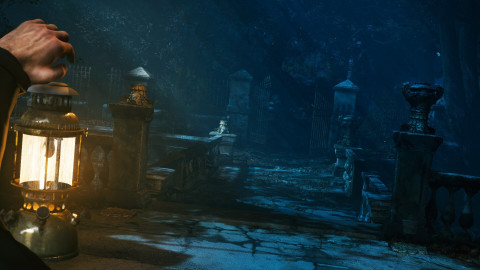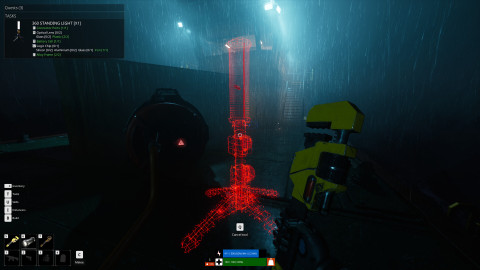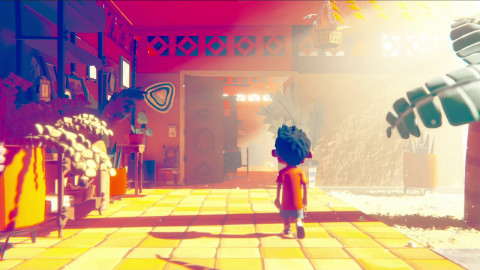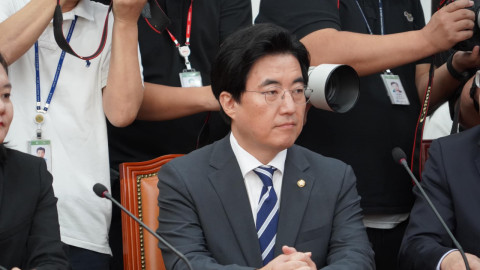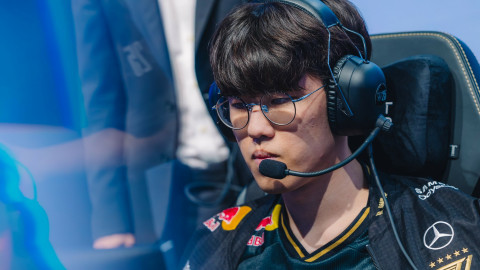
Twenty years. Twenty long years since Super Smash Bros. Melee was first released. If you’re reading this, most likely you’re at least somewhat familiar with the competitive scene, so it doesn’t require mentioning the rich history of our community. As other games come and go, Melee survives — we all know this. To have a thriving competitive scene for two decades is something very few games can claim.
Other games can claim it though. StarCraft: Brood War fans still have the AfreecaTV StarCraft League. Certain FGC titles can still draw decent attendance at side events for major tournaments. Even games like Galaga and Tetris have events.
That’s probably all they’ll ever have though. While there will be a handful of new competitors (shoutout to the Tetris kids), all these games are in a weird half-life where the player base keeps getting older, with not enough fresh competitors to compensate. In the most recent season of AfreecaTV StarCraft League, no player in the top 28 was younger than 26. Most were in their early to mid-thirties. While there is still a bunch of great competition, it’s concerning that the players will just get older and older.
Melee doesn’t have this problem. Despite only releasing a few later than a game like StarCraft, it has continued to attract new players. People like Logan Dunn, John "KoDoRiN" Ko, and Sasha "Magi" Sullivan are now placing high at events. People like Zain Naghmi, Cody "iBDW" Schwab, and Justin “Wizzrobe” Hallett have been winning tournaments. Yes, some of these people have been involved with the scene for a very long time. Just as long as some of the classic pantheon players. But in general, it’s undeniable: Melee is the gift that keeps giving.

In celebration of the 20th Anniversary of Melee, here are some accounts from some of the games brightest young newcomers about how the game has personally impacted them, and how the scene has changed their lives.
Super Smash Bros. Melee: Competition
The most obvious aspect Melee has provided to a younger audience is the ability to compete — to put their all into something they love. For some, such as in the case of Dawud "Aklo" Rahman, the game was a childhood pastime.
“Melee has been an integral part of my life for literally as long as I can remember. Even as a toddler, it was my favorite game to play. I would constantly play with my three older brothers, as it was a fun game that we could play together at the same time. I would even play the game by myself when my brothers were off at school. Playing Melee at home with my brothers led to bickering at times, but was still very fun. It was entering tournaments together that really united us. These are some of my most cherished memories. Melee was something that the four of us shared a love for. Never have I seen my brothers and me be as supportive toward each other as we were when playing in brackets.
Without Melee, I probably would have had a passion that doesn’t involve video games at all. This could have been playing more of the violin, focusing more on school, or even playing a sport. I understand that these activities may seem more beneficial than playing Melee, but I do not see my passion for Melee as a negative one. I’ve learned so much from being a part of the Melee community. I’ve learned to not judge people who are different from me. I’ve learned what it means to be a competitor. This includes the rivalries, the hate, the support, the heart-wrenching losses, and the heart-clutching wins. The most important thing that Melee has taught me is that succeeding or improving at something requires dedication and the desire to do so. Being considered good at Melee gave me a chance to work on my humility. I understand that people look up to me, but the number one thing I always stress is that being better at someone in Melee does not make you a better person than them. I am extremely thankful for Melee and the opportunities it has provided me with.”
For others, it came later — discovering that Melee was the unique experience for them to properly express themselves. Magi was someone very open about how much the game has impacted her.
“Melee completely changed my life. Before Melee I didn't really have a competitive endeavor that clicked with my skillset, and honestly even outside of tournaments I've been seeking out a game like Melee just for myself. I'm so obsessed with tactile games and anything that let’s me go fast, but when I was younger I didn't really have access to those types of games outside of Guitar Hero. But I always dreamed of a game that would be fast and technical and let you control so much more than what games usually let you do. I even used to play slower games but just pretend they were a bit faster and tried to add extra inputs to what I did to make it more satisfying.
So, in a lot of ways, I was kinda waiting for Melee to show up in my life. And it honestly just feels like it was meant to be. In my living situation with my parents I desperately needed to accumulate the resources to move out and live on my own so I could transition and whatnot without fear of my parents, but I didn't have a car and was still in school, so it was just tough to think of anyway for me to do this. That's right around where my Melee career really shot off and I decided to take a big risk and do Melee as my job. Ever since then, life has just steadily gotten so much better and I couldn't be more happy with how things turned out. So yeah, I think the simplest answer is that Melee transformed my life completely and I would be a sad husk of a person without it.”

Super Smash Bros. Melee: Family
One of the most famous excerpts from The Smash Brothers documentary series was Chris "Wife" Fabiszak’s reasoning on why the Smash community was important to him: "It was a chance for us to be somebody.”
That idea rings today — any active competitor, not even necessarily the most skilled, can find a home in the tournament scene.
When speaking with Linus "Pipsqueak" Nordin, he stated: “I have written about it before but finding Melee was massive for me in many different ways. Before Melee I lacked self-confidence and was fairly socially awkward but in achieving some level of success within the game I proved to myself that I could do it which was very valuable in a situation where the rest of my life wasn't giving me that sense of self-worth. From there I eventually found it easier to talk to people and develop personal connections as well as a sense of confidence and security in myself. I don't know where I would be without Melee but it would almost certainly be worse off than I am now. Most of my best friends come from melee and it's still the thing that drives me to do my best in everything I do. I can't thank the scene enough for that."
Even those with more challenging circumstances have been able to find family in the scene.
“I think for me, Melee gave me the opportunity to be social,” said Logan. “As someone with Asperger's I never really got the opportunity and Melee was a place to fit in. It also inspired me to embark on my journey of self-improvement. I think it made me a stronger, more confident, and more capable person.”
Super Smash Bros. Melee: Growth
Both the ability to compete and make new friends using the scene are wonderful. Arguably the most important (and one that should be emphasized) aspect of the community is how it can help make people stronger as individuals.
“Melee has forced me to go beyond my comfort zone to grow and overcome any possible obstacles in my way, teaching me to foster a healthy mindset and being more open-minded to various ideas that has seeped to other aspects of my life,” said KoDoRiN. “Without Melee, I think I'd be fine as a person (and possibly even more financially successful lmao), but Melee has given me a sense of fulfillment that I honestly do not think anything else in life could grant me. It makes every day exciting, has given me a sense of community I belong, and a goal that would be very fulfilling to achieve. Without it, I think my life would be fine but pretty boring otherwise.”
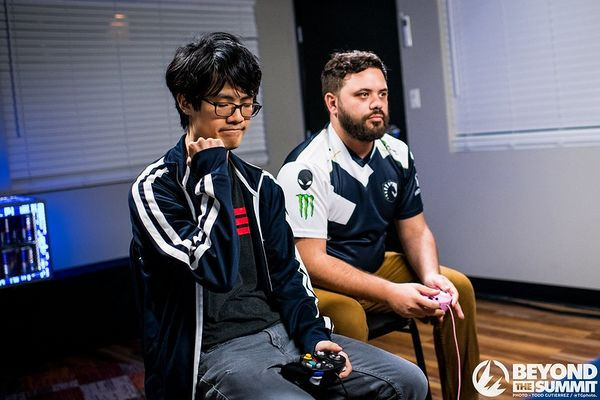
Just like any competition, it’s having a strong mindset that has allowed some members of the scene to grow as individuals.
In the case of iBDW, he stated, “Competition really forces you to look inwards—certain aspects of yourself—and try to really figure out how to emotionally regulate yourself. How to be, I guess, accountable. Because nobody is going to hold you accountable besides your tournament results. So you have to be up, you have to be ready to practice, you have to be ready to stream, you have to do all that stuff on your own. No one's gonna hold your hand, no one's going to kind of look over your shoulder. And you have to try to do it while being a decent person, which I'm still working on. So as with everyone. But I think it's been one of the most transformative experiences I could have had.”
Over 20 years, Melee hasn’t gone anywhere. Judging from this new wave of competitors that appreciate the community, competition, and opportunity for growth that the game offers, it’s clear that it won’t be going anywhere soon. Game on.
-

I write. I rap. I run. That’s pretty much it.
Sort by:
Comments :0

